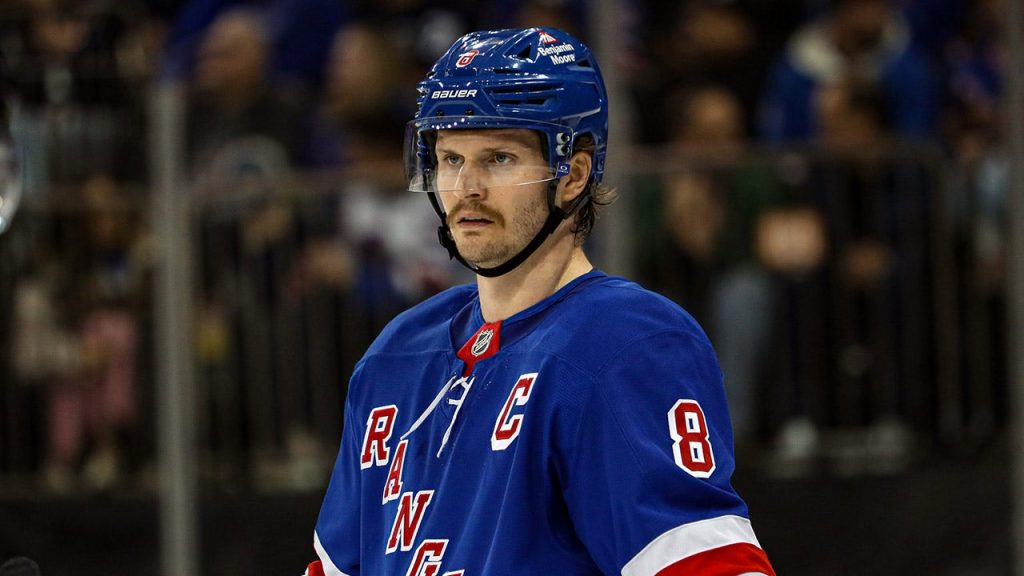The New York Rangers’ recent trade of captain Jacob Trouba to the Anaheim Ducks marks a significant turning point for both organizations and underscores the challenging dynamics of professional sports. The trade, driven by the Rangers’ recent slump and general manager Chris Drury’s desire to reshape the team’s core, brings an end to Trouba’s tumultuous tenure in New York, while offering the Ducks a veteran presence and leadership figure. The move also highlights the complex interplay of personal circumstances, contractual obligations, and on-ice performance in shaping the careers of professional athletes.
Trouba’s journey with the Rangers began with high expectations. Acquired from the Winnipeg Jets before the 2019-2020 season and signed to a lucrative seven-year, $56 million contract, he was appointed the 28th captain in franchise history prior to the 2022-2023 season. However, his time in New York was marked by inconsistency and controversy, culminating in his recent benching and subsequent trade. The Rangers, despite their struggles, remain in playoff contention, and Drury clearly felt a change was necessary to reignite the team’s potential. The trade of a captain mid-season, especially one with a significant contract, is a bold move, reflecting Drury’s determination to reshape the team’s trajectory.
The trade sends Trouba to the Anaheim Ducks, a team currently in a rebuilding phase. The Ducks, while showing flashes of potential, are looking to establish a winning culture, and Trouba’s experience and leadership qualities could prove invaluable in mentoring their younger players. The Ducks are absorbing the remainder of Trouba’s contract, a financial commitment that demonstrates their belief in his potential contribution. For Trouba, the move presents an opportunity for a fresh start and a chance to recapture his previous form in a new environment. The reunion with former Rangers teammates Ryan Strome and Frank Vatrano could also provide a sense of familiarity and support as he transitions to Anaheim.
The trade also highlights the often-unceremonious nature of departures for recent Rangers captains. Ryan McDonagh and Ryan Callahan were both traded to the Tampa Bay Lightning, and Drury himself, a former Rangers captain, had his contract bought out. This pattern underscores the demanding nature of the New York market and the pressure to perform consistently at a high level. The Rangers, a storied franchise with a passionate fanbase, have a history of making swift changes when expectations are not met.
The circumstances surrounding Trouba’s trade reveal the complexities that often accompany player transactions. Drury’s attempts to trade Trouba in the offseason were reportedly hampered by Trouba’s wife’s medical residency, highlighting the personal factors that can influence a player’s career trajectory. Trouba’s no-trade clause further complicated matters, underscoring the power dynamics inherent in player contracts. These behind-the-scenes negotiations demonstrate the intricate balancing act required to navigate the business side of professional sports.
The trade has significant implications for both teams moving forward. The Rangers, relieved of Trouba’s contract and looking to inject new energy into their lineup, will be aiming to regain their momentum and solidify their playoff position. The Ducks, with the addition of a veteran presence and leadership figure in Trouba, will be hoping to accelerate their rebuilding process and cultivate a winning culture. The trade underscores the ever-evolving nature of professional sports, where player movement and roster adjustments are often necessary to achieve organizational goals. Only time will tell if this trade proves beneficial for both teams involved, but it certainly marks a significant chapter in the careers of Jacob Trouba and the respective franchises.

